Trump ‘a potential risk’ for Carney and his ‘full-throttle government,’ says Nanos, but he’s still preferred PM
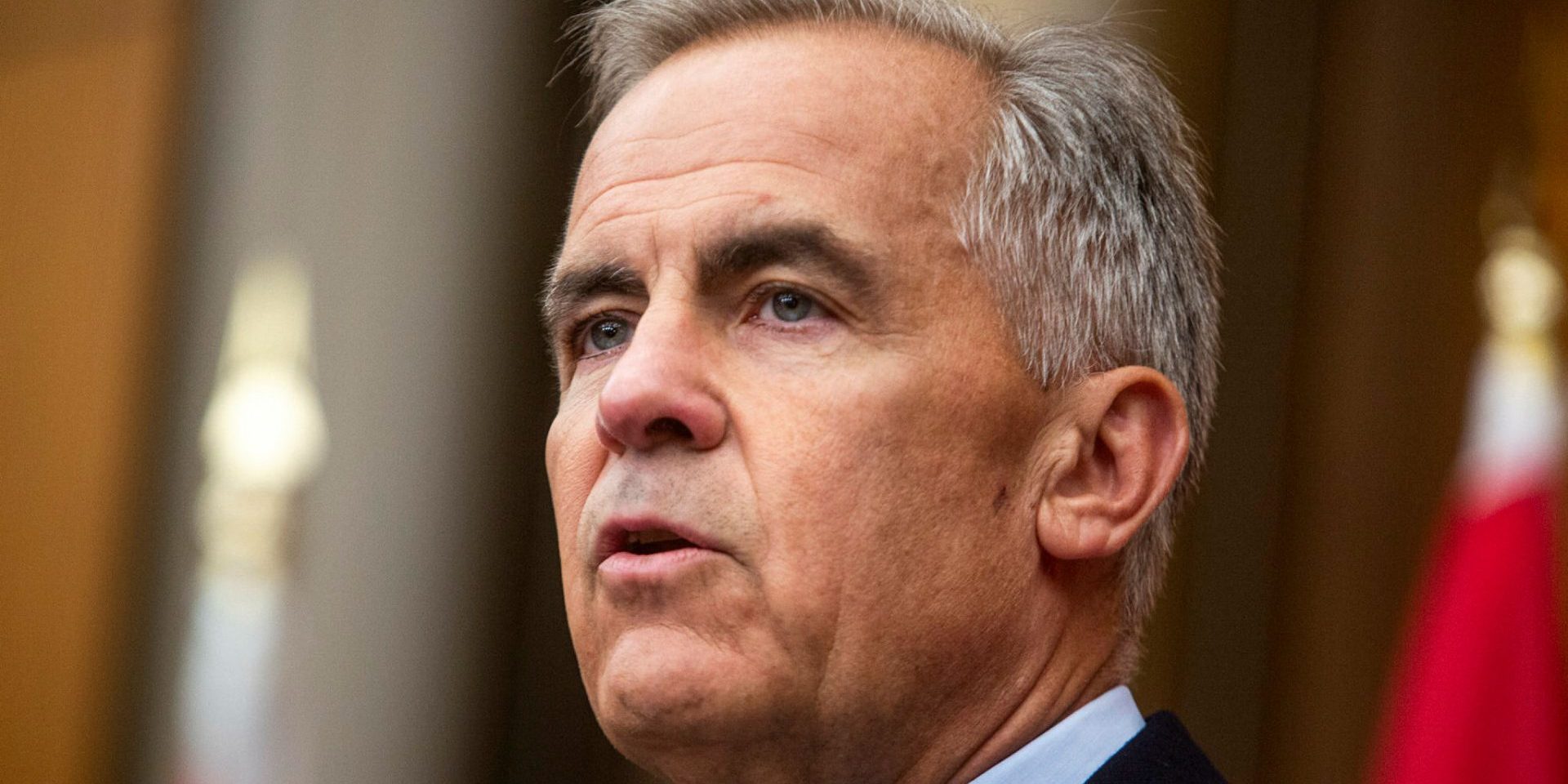
While nearly half of Canadians view him as the choice for “preferred prime minister,” and the governing Liberal Party that he leads is 10 points ahead of the official opposition Conservatives, Prime Minister Mark Carney is facing a greater challenge than what his predecessor Justin Trudeau confronted in the first year of his majority government a decade ago, says Nik Nanos, whose polling firm released the new numbers on July 29.
For Canadians, the two top national issues are jobs and the economy, and United States President Donald Trump and Canada-U.S. relations, based on a Nanos Research survey of 1,027 Canadians that ended on July 25. Nanos explained that those issues are intermingled given the “uncertainty” arising from the Trump White House.
“Trudeau’s first challenge was Trump 1. But Trump 1 was not as fixated on Canada,” said Nanos, founder and chief data scientist at Nanos Research Corp., on the president’s first administration. “Now we have a president who every week says something about what he doesn’t like about the Canada-U.S. relationship—so it’s much more hostile.”
Last week, as the Aug. 1 deadline for a bilateral trade deal remained in flux, Trump told reporters outside the White House that “we haven’t really had a lot of luck with Canada,” and that “a tariff,” rather than “a negotiation,” could be the outcome. After Carney (Nepean, Ont.) announced on July 30 that Canada would recognize the Palestinian state in September and UN General Assembly, based on certain conditions, Trump threatened Canada and said in a social media post on July 31 that it will be “very hard” to make a trade with Canada now.
“This could be a potential risk for Carney,” said Nanos in an interview before Trump’s latest threat on July 31. “If Trump has a strategy of making deals with everybody else but Canada, Canadians may be wondering if we have a good negotiating strategy with Trump. They would expect Canada would be at the top of the list because we already have a trade agreement in place.”
On July 31, Trump signed an executive order increasing tariffs on Canadian goods to 35 per cent effective Aug. 1, and in it referred to “Canada’s lack of co-operation in stemming the flood of fentanyl and other illicit drugs across our northern border” and Canada’s retaliation against the U.S.
But Nanos said he also doubts that the latest trade slap against Canada will affect Carney in the short term.
“The reality is that every country in the world is dealing with the same U.S. president coming out with tariff positions on a regular basis, so it’s part of the uncertainty,” said Nanos on Aug. 1.
“The long-term risk remains if other countries start to have more stable trading relationships with the United States except for Canada, then Canadians might be second-guessing how good our strategy is,” Nanos said.
Angus Reid released a poll on Aug. 1 showed Canadian resolve on trade negotiations had hardened the day after Trump increased tariffs to 35 per cent. “Results from an overnight poll suggest the proportion of those advising the PM and his team to ‘play hardball’ has increased, from 63 to 69 per cent of the population compared to mid-July,” the Angus Reid statement said.
In the recent Nanos survey, 49 per cent of respondents chose Carney as their preferred prime minister, compared to Conservative Leader Pierre Poilievre, at 24 per cent.
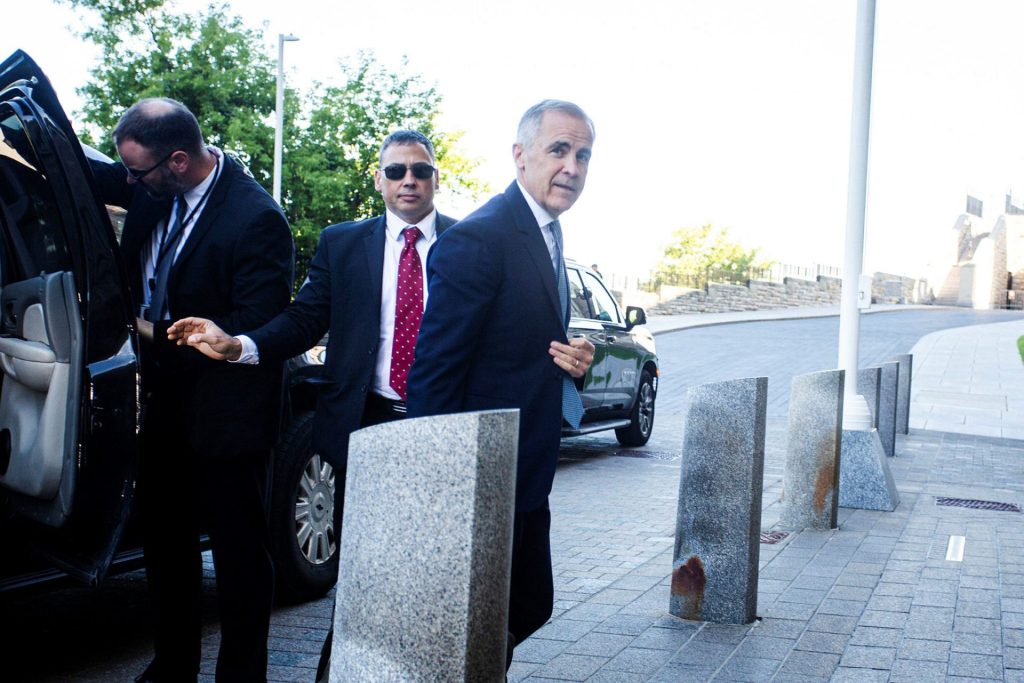
The Liberals led with 44 per cent support across the country, followed by the Conservatives at 34 per cent.
Riding high in the polls, Carney has also changed the tone of the federal government in an unprecedented way in Nanos’ view.
However, Nanos said those numbers could change, given Carney’s announcement on Palestine. On July 30, Carney said Canada intends to recognize Palestine as a state at the 80th session of the United Nations General Assembly in September—and underlined that “Hamas can play no part in” a general election Palestinian Authority President Mahmoud Abbas has committed to holding next year.
The prime minister also reaffirmed Canada’s support for a two-state solution involving Palestine and Israel—a position that the official opposition party also backs.
But in a statement on July 30, the Conservatives also said that if the Liberal government “recognizes the Palestinian state now, it is impossible that Hamas will not play a central role” and “legitimizes terrorism by handing political rewards to a group that rules Gaza through fear, oppression and brutality.”
The result of the partisan divide, said Nanos, will be that “Canadians see a Liberal government that looks to be leaning towards supporting the Palestinians and Conservatives who are not as supportive of Palestinians.”
“In a political environment where the policies between the Liberals and Conservatives are fuzzy—on the economy, on trade, on cutting government, on building pipelines—depending on how far the Conservatives go, this could be a clear delineation between the Conservatives and the Liberals,” he said.
“It gives Poilievre something to talk about.”
Meanwhile, Nanos said Carney’s “running a full-throttle government that is much more business-like, and very focused and results-oriented. I don’t think we’ve seen this level of pace of effort and speed. This is a high-intensity government that is extremely focused and wants results. … The big question is, can he deliver?”
Nanos said that in his firm’s polling, most Canadians would like to see some results from the Carney government by year’s end, without indicating on what files they would like to see action taken.
He added that the prime minister must be careful on managing expectations, particularly on setting aggressive timelines on any deals or arrangements with the Trump administration, which, as Nanos noted, “cannot be controlled and dictated to.”
“When it comes to things within the federation and with premiers, like on interprovincial trade, labour mobility and immigration, setting timelines on those is much more realistic because that ecosystem Carney can influence,” said Nanos. “He’s the big dog.”
And one that the provincial premiers seem to like.
At their recent meeting in Huntsville, Ont., Ontario’s Progressive Conservative Premier Doug Ford told reporters that “the prime minister is the most humble person you’d ever want to meet” and that he would “hand the keys of a business over to” Carney.
Nova Scotia’s Tim Houston, another PC premier, said that he has “tremendous confidence in the prime minister.”
Carney “has got to build and continue to articulate what he has achieved with the premiers so that people can see things are changing and moving forward, and that he has a greater scope of control over that,” said Nanos.
“Because of the stress on the binational relationship with Donald Trump, there is an imperative to make sure that the country can be as resilient as possible, and fix some of the deficiencies within the federation so that it starts to prepare and be more resilient in being not as integrated with the United States.”
But Nanos said Carney has to prepare for the fallout of whatever damage Trump inflicts on this country’s economy, which is probably the key driver “for the high-velocity movement of this government.”
However, he cautioned “that we shouldn’t think that all Canadians think Mark Carney is wonderful. I think the reality is that a significant part of the Carney advantage right now is not just what he is doing, but the fact the opposition parties are on the defence.”
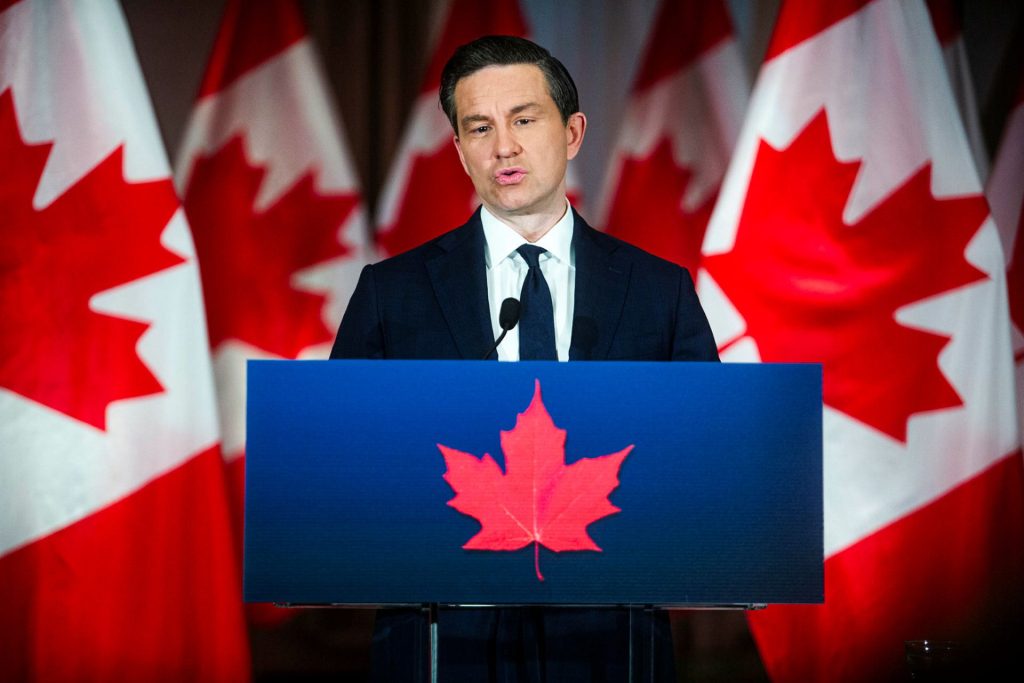
Nanos noted that any missteps could “create space for the Conservatives and breathe life into Pierre Poilievre,” whose polling numbers have never been as low as they were in Nanos’ latest survey.
“He’s at the same level as when people wanted [former Conservative leaders] Erin O’Toole and Andrew Scheer to leave,” said Nanos.
He said that after Poilievre lost his long-held riding of Carleton, Ont., to Liberal rookie Bruce Fanjoy in the April federal election—despite the federal Conservatives receiving 41 per cent of the national vote—normally enough to form government, Nanos offered—the Tory leader has become a “question mark.”
“He hasn’t been in the House of Commons, and for average Canadians, I’m sure they were surprised to see that he lost his seat after his party had done exceptionally well in terms of ballot support, and are probably wondering whether he will be different when he comes back—and how his leadership review will unfold,” said Nanos.
Poilievre is expected to win the Alberta seat of Battle River-Crowfoot in an Aug. 18 byelection that will feature a record-setting list of more than 200 candidates—most of them associated with the electoral-reform advocating group the Longest Ballot Committee—and more than double the 90 candidates who ran against the Conservative leader in the spring general election.
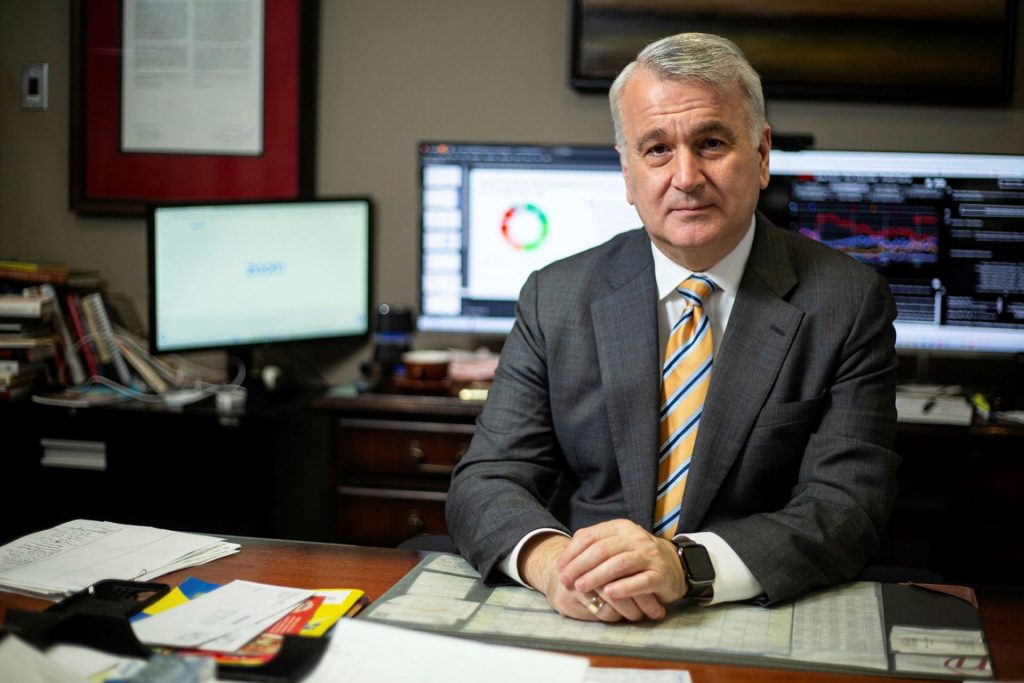
But as Nanos pointed out, Poilievre will have to win the riding by around as much as his Conservative predecessor, Damien Kurek, did in April with a whopping 83 per cent of the vote, to secure his leadership when it’s up for review in January.
Meanwhile, in the latest Nanos poll, the federal New Democratic Party was at 12 per cent with interim leader Don Davies (Vancouver Kingsway, B.C.) chosen as preferred PM by only two per cent of respondents, a percentage point behind federal Green Party Leader Elizabeth May (Saanich-Gulf Islands, B.C.).
The New Democrats will choose a new leader in March 2026, but Nanos said that they need to “start a process so that they could put together new ideas on how they want to take up the ideological space that the Carney centrist Liberal government has created on the left,” he said.
With a federal review underway to find billions of dollars in cuts or savings, and identify federal regulations that can be eliminated, “there’s no way that Mark Carney can deliver” on those initiatives and “national projects that cut across the environment and Indigenous relations without offending progressive voters,” said Nanos.
Meanwhile, the results of a survey of 1,915 Canadians conducted by Abacus Data in mid-July revealed that Carney “aligns more closely” with the expectations Canadians have of their leaders than Poilievre, according to a briefing note by David Coletto, founder, chair and chief executive officer of the polling firm.
On nine “must-have” leadership qualities for a prime minister, such as putting “the country’s interests ahead of political gain,” “avoiding unnecessary conflict,” and “being calm and steady during unsteady times,” more respondents said that Carney embodies those traits than the Conservative leader.
“In short, Carney is not just liked,” wrote Coletto. “He’s seen as competent, principled and measured, qualities that resonate strongly with the electorate right now.”
Carney scored highest—by 69 per cent of respondents—in the “calm and steady” category, while Poilievre’s top rating—by 55 per cent of respondents—was for “understanding the challenges facing ordinary Canadians.”
Coletto said that while Poilievre’s “supporters see him in highly positive terms, and his ratings are strong within the Conservative voter universe, his alignment with broader expectations is weaker.”
Coletto said “Poilievre’s strength continues to lie in mobilizing his base and speaking to a sense of urgency and dissatisfaction,” but that “his brand is not yet aligned with the broader public’s expectations of a prime minister. And his more confrontational political style, while appealing to core supporters, may be holding him back among those who value calm, collaboration, and institutional trust.”
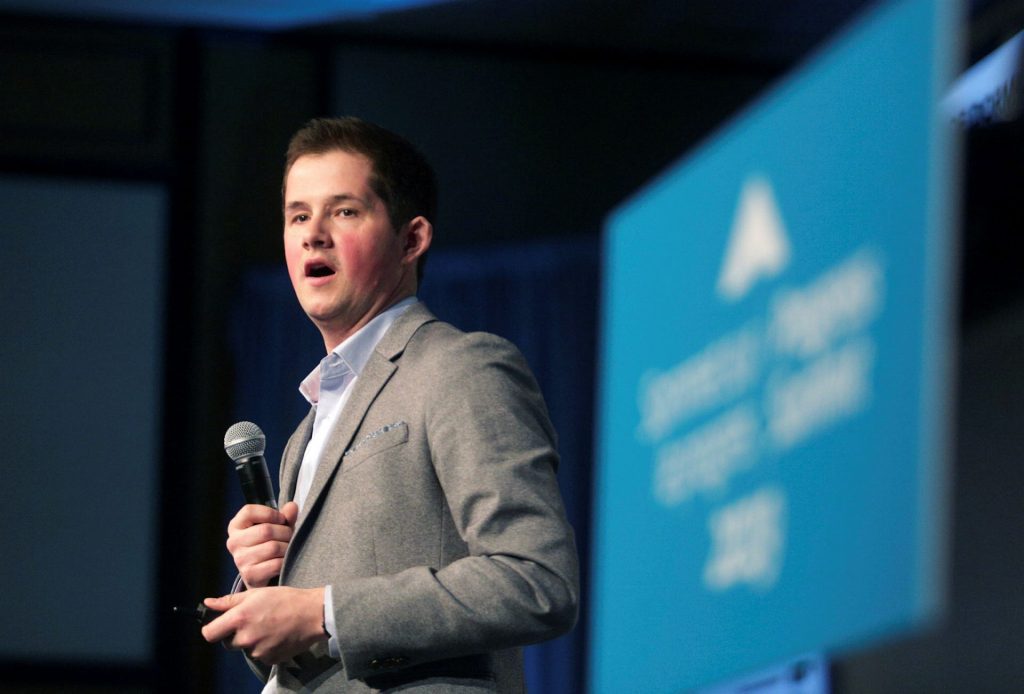
“Carney, on the other hand, benefits from being perceived as measured and policy-driven,” wrote Coletto. “His perceived temperament matches what more Canadians are looking for right now, especially as his government navigates complex negotiations with the United States and continues to respond to global trade turbulence stirred up by Donald Trump.”
“Canadians,” said Coletto, “want someone who puts the country first, understands their challenges, and brings a clear, steady hand. Right now, Mark Carney is meeting those expectations better than Pierre Poilievre, not just with his own base, but with the people in the middle who will decide future elections.”
“That doesn’t mean the gap can’t close, but it may require a recalibration of tone and substance, or a change in the competitive landscape, such as through a “rising” NDP and Bloc Québécois,” said Coletto, who added that Canadians “are not demanding radical reinvention” but are “asking for stability, empathy, and competence. The question isn’t just whether voters are satisfied with government performance at this point; it’s whether they see a leader who matches the moment.”
“Carney’s calm, technocratic style fits well with a public mood that prizes steadiness over spectacle. For Poilievre, the challenge isn’t enthusiasm, it’s expansion. Unless he can reshape how Canadians see him on the traits [that] they value most, the path to victory will depend less on how frustrated people are with the status quo, and more on whether they believe the alternative is truly ready to lead.”
The Hill Times





 LICENSING
LICENSING PODCAST
PODCAST ALERTS
ALERTS













